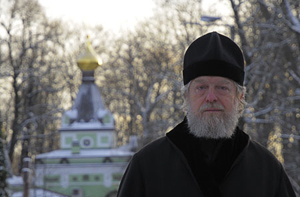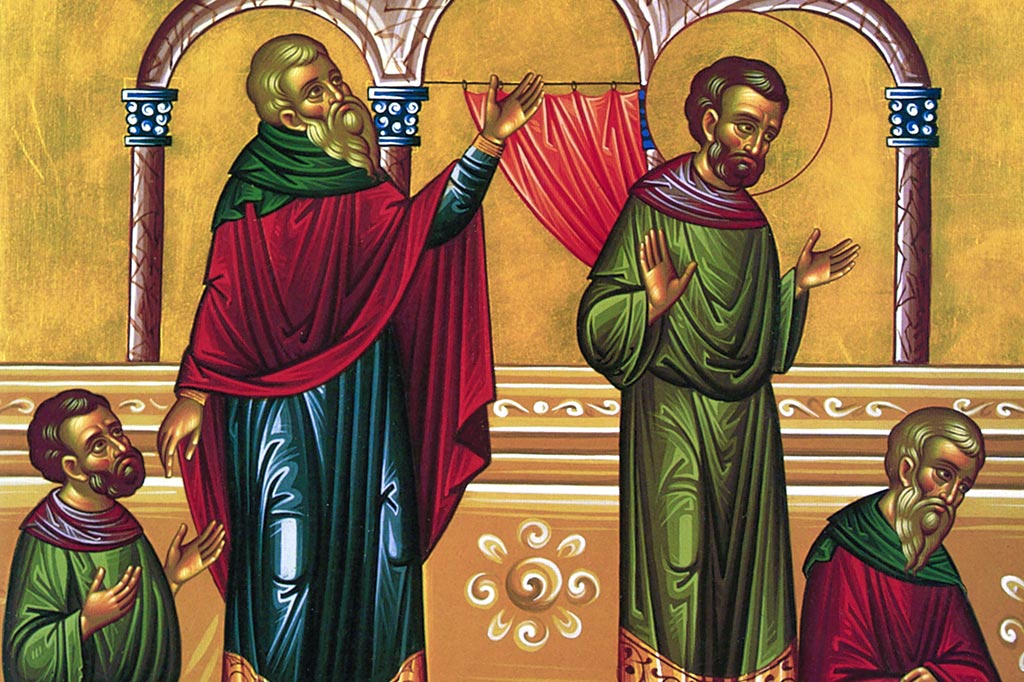 On January 24/ February 6, the Russian Orthodox Church celebrates the memory of St. Xenia of St. Petersburg. The story of this woman, who for the sake of serving God and man renounced everything, still amazes and causes wonder. We asked the rector of the Church of the Smolensk Icon of the Mother of God and the chapel of St. Xenia in St. Petersburg, Archpriest Viktor Moskovsky, about the personality, the canonization history, and the spiritual labors of St. Xenia of St. Petersburg, and also about what is a fool-for-Christ and whether they exist in our times.
On January 24/ February 6, the Russian Orthodox Church celebrates the memory of St. Xenia of St. Petersburg. The story of this woman, who for the sake of serving God and man renounced everything, still amazes and causes wonder. We asked the rector of the Church of the Smolensk Icon of the Mother of God and the chapel of St. Xenia in St. Petersburg, Archpriest Viktor Moskovsky, about the personality, the canonization history, and the spiritual labors of St. Xenia of St. Petersburg, and also about what is a fool-for-Christ and whether they exist in our times.
Theology
Feast of the Three Holy Fathers, Great Hierarchs and Ecumenical Teachers, Basil the Great, Gregory the Theologian, and John Chrysostom
12. February 2018 - 1:33 During the reign of the Emperor Alexius Comnenus (1081-1118), a controversy arose in Constantinople among men learned in Faith and zealous for virtue about the three holy Hierarchs and Fathers of the Church, Basil the Great, Gregory the Theologian and John Chrysostom. Some argued for Saint Basil above the other two because he was able, as none other, to explain the mysteries of the Faith, and rose to angelic rank by his virtues. Organizer of monastic life, leader of the entire Church in the struggle with heresy, austere and demanding shepherd as to Christian morals, in him there was nothing base or of the earth. Hence, said they, he was superior to Saint Chrysostom who was by nature more easily inclined to absolve sinners.
During the reign of the Emperor Alexius Comnenus (1081-1118), a controversy arose in Constantinople among men learned in Faith and zealous for virtue about the three holy Hierarchs and Fathers of the Church, Basil the Great, Gregory the Theologian and John Chrysostom. Some argued for Saint Basil above the other two because he was able, as none other, to explain the mysteries of the Faith, and rose to angelic rank by his virtues. Organizer of monastic life, leader of the entire Church in the struggle with heresy, austere and demanding shepherd as to Christian morals, in him there was nothing base or of the earth. Hence, said they, he was superior to Saint Chrysostom who was by nature more easily inclined to absolve sinners.
Five Questions About St. Xenia of St. Petersburg
7. February 2018 - 16:20He came to himself – What does this mean?The two things we must know to be saved.
4. February 2018 - 15:51 Homily on the Prodigal Son
Homily on the Prodigal Son
In the Name of the Father and the Son and the Holy Spirit, Amen. [1]
The Church gives us another example today, about repentance. It tells us another part of the story. This is the Sunday of the Prodigal Son, and is yet another Sunday that prepares us for the Great Fast. We are coming quickly upon it. Next week will be the Sunday of the Last Judgment, after which we stop eating meat, and after that is the Sunday of Forgiveness, and we then begin the fast, the following day.
Sunday of the Publican and Pharisee
1. February 2018 - 12:08 Introduction
Introduction
The Sunday of the Publican and the Pharisee is the first Sunday of a three-week period prior to the commencement of Great Lent. It marks the beginning of a time of preparation for the spiritual journey of Lent, a time for Orthodox Christians to draw closer to God through worship, prayer, fasting, and acts of charity. It is also on this day that the Triodion is introduced, a liturgical book that contains the services from this Sunday, the tenth before Pascha (Easter), to Great and Holy Saturday.
Saint Mark the Archbishop of Ephesus
1. February 2018 - 11:58 Saint Mark Eugenikos, Archbishop of Ephesus, was a stalwart defender of Orthodoxy at the Council of Florence.
Saint Mark Eugenikos, Archbishop of Ephesus, was a stalwart defender of Orthodoxy at the Council of Florence.
He would not agree to a union with Rome which was based on theological compromise and political expediency (the Byzantine Emperor was seeking military assistance from the West against the Moslems who were drawing ever closer to Constantinople). Saint Mark countered the arguments of his opponents, drawing from the well of pure theology, and the teachings of the holy Fathers. When the members of his own delegation tried to pressure him into accepting the Union he replied, “There can be no compromise in matters of the Orthodox Faith.”
Pharisee and sinner
31. January 2018 - 14:30 In order to understand this Bible story properly, we should remind ourselves what the roles of Publicans and Pharisees were in Judean society at the time of Christ’s ministry. The Pharisees belonged to a Jewish sect, known for its strict observance of religious ceremonies and practices, adherence to oral laws and traditions, and the coming of a Messiah. They belonged to the middle-class of society, and also believed in an afterlife and the resurrection of the dead. They regarded themselves as righteous people, and their relationship with God was purely legalistic. By certain historical records, at the time of the destruction of Jerusalem A.D. 70, there were around six thousand of them. Publicans were actually tax collectors employed by Romans – occupiers of Judea at the time. They were obliged to pay an agreed amount to the Romans, and whatever was left over they were permitted to keep for themselves. They grossly overcharged people extorting money from them. This was the primary reason they were despised and hated by their own people.
In order to understand this Bible story properly, we should remind ourselves what the roles of Publicans and Pharisees were in Judean society at the time of Christ’s ministry. The Pharisees belonged to a Jewish sect, known for its strict observance of religious ceremonies and practices, adherence to oral laws and traditions, and the coming of a Messiah. They belonged to the middle-class of society, and also believed in an afterlife and the resurrection of the dead. They regarded themselves as righteous people, and their relationship with God was purely legalistic. By certain historical records, at the time of the destruction of Jerusalem A.D. 70, there were around six thousand of them. Publicans were actually tax collectors employed by Romans – occupiers of Judea at the time. They were obliged to pay an agreed amount to the Romans, and whatever was left over they were permitted to keep for themselves. They grossly overcharged people extorting money from them. This was the primary reason they were despised and hated by their own people.

